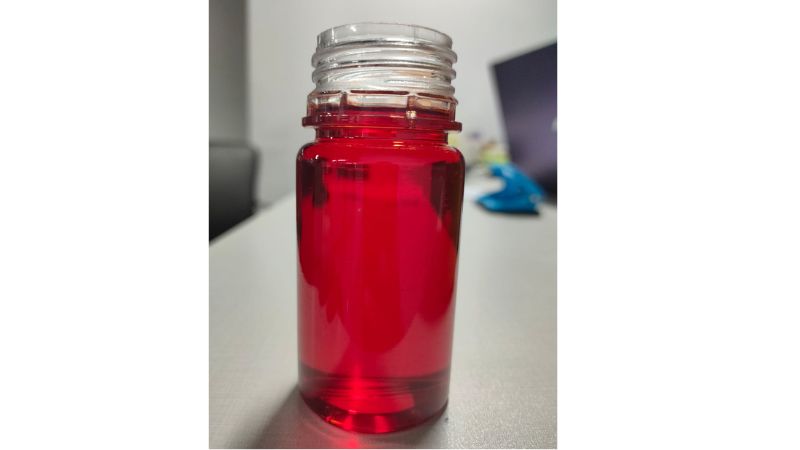It’s a question that has plagued drivers for years – does car oil evaporate? And if it does, why & what are the effects? In this article, we will discuss these questions & another relevant factor. We’ll talk about how car oil works, why it evaporates, and the consequences of running low on oil. By the end of this post, you’ll have a better understanding of what happens when your car’s oil level gets too low.

Does car oil evaporate?
The answer to this question is both yes and no. Car oil evaporates, but it happens very slowly over time. If you top off your oil regularly, you shouldn’t have to worry about it disappearing. However, if you let your oil level get too low, evaporation can become a problem. That’s why you need to check the oil level by dipstick.
When car oil evaporates, it leaves behind a thick, black residue. This residue can build up and clog your engine’s parts. If your engine doesn’t have enough oil, it will start to overheat. Eventually, this can lead to serious damage or even engine failure.
When does car oil evaporate?
Car oil can evaporate when it’s exposed to heat for extended periods of time. This can happen if your car engine overheats frequently or if you leave your car parked in the sun for long periods of time or if you drive frequently in hot weather. So you need to be careful about your car engine temperature. If you see an overheating signal in the dashboard you should immediately take action to solve this.
You Should Read: Can A Car Overheat With Low Oil?
Evaporating engine oil can cause problems because it leaves behind a thicker, more viscous oil that doesn’t flow as easily and can’t lubricate your engine as effectively. This can lead to increased wear and tear on your engine and potentially shorten its lifespan.
Why does car oil evaporate?
The main reason is that it’s exposed to heat. Your engine produces a lot of heat when it’s running, and this can cause the oil to break down internally. That’s why the volatility may increase. And we know every fluid has a volatility factor. when it increases evaporation started.
So it’s important to check your oil level regularly and top it off if necessary.
What to do, if car oil evaporates?
If you’re worried about your oil evaporating, there are a few things you can do. First, you can simply check your oil level more often and top it off as needed.
On the hand, you can switch to synthetic oil, which is designed to withstand higher temperatures. You can also add an oil cooler to your engine, which will help keep the oil at a consistent temperature.
How long does it take for motor oil to evaporate?
It depends. If you’re talking about unrefined oil, it can evaporate fairly quickly. However, if you’re talking about synthetic oil, it’s designed to withstand higher temperatures and will take longer to evaporate.
What are the effects of evaporated motor oil?
If your motor oil has evaporated, it’s likely because there’s a leak in your engine. This can cause all sorts of problems, including decreased fuel efficiency, increased emissions, and damage to your engine. If you think you have a leak, it’s best to take your car to a mechanic to have it checked out. In the meantime, you’ll need to add oil to your car more frequently.
So there you have it! That’s how motor oil evaporates and what the effects are. Be sure to check your oil level regularly and top off as needed to avoid any problems.
What causes engine oil to evaporate?
There are a few things that can cause engine oil to evaporate:
- Leaks: If your car has an oil leak, the oil will eventually evaporate.
- Hot weather: If it’s hot outside, the heat can cause the oil to evaporate.
- Driving habits: If you drive aggressively or don’t change your dirty oil often enough, the oil can evaporate.
Evaporating engine oil is not a good thing, but it can happen. If you’re worried about it, take some preventive measures and check for leaks regularly. With a little care, you can avoid evaporating engine oil and keep your car running smoothly.

Car losing oil but no leak or smoke?
If you notice your car is losing oil but there’s no leak or smoke, it could be due to evaporation. Here’s what you need to know about this issue and how to prevent it.
How can I prevent my car oil from evaporating?
There are a few things you can do to prevent your car oil from evaporating:
– Park in the shade or in a garage whenever possible to minimize exposure to heat.
– Check your oil level regularly and top it up if necessary.
– Use a higher quality oil that has a higher flash point (the temperature at which it starts to vaporize).
What are the consequences of evaporating car oil?
If you don’t take steps to prevent your car oil from evaporating, the consequences can include:
- Increased wear and tear on your engine
- Reduced fuel efficiency
- Shortened engine lifespan
FAQs:
Q. Does synthetic oil evaporate over time?
No! Synthetic oil does not evaporate as quickie as traditional oil or mineral oil. Generally, synthetic oil produces from Group III or Group IV base oil which has high viscosity index. That’s why in higher temperatures molecules of synthetic oil do not break down easily like mineral oil.
Q. Does motor oil evaporate on the ground?
Oil does evaporate on the ground, but it takes a long time. If you have an oil leak, it’s best to clean it up as soon as possible. Otherwise, the oil will eventually evaporate and leave behind a nasty stain.
Q. Does engine oil reduce over time
Yes, over time due to heat production & oil absorption by engine oil would be reduced from day one in any car. But if it is not negligible, please search for overdue oil change symptoms or consult your car manufacturer.
Final Word:
So, there you have it! Now you know how car oil evaporates and what the consequences can be. Actually, it depends on the oil types & how and where you are using it! Be sure to take steps to prevent it from happening to keep your car running smoothly. Thanks for reading!
